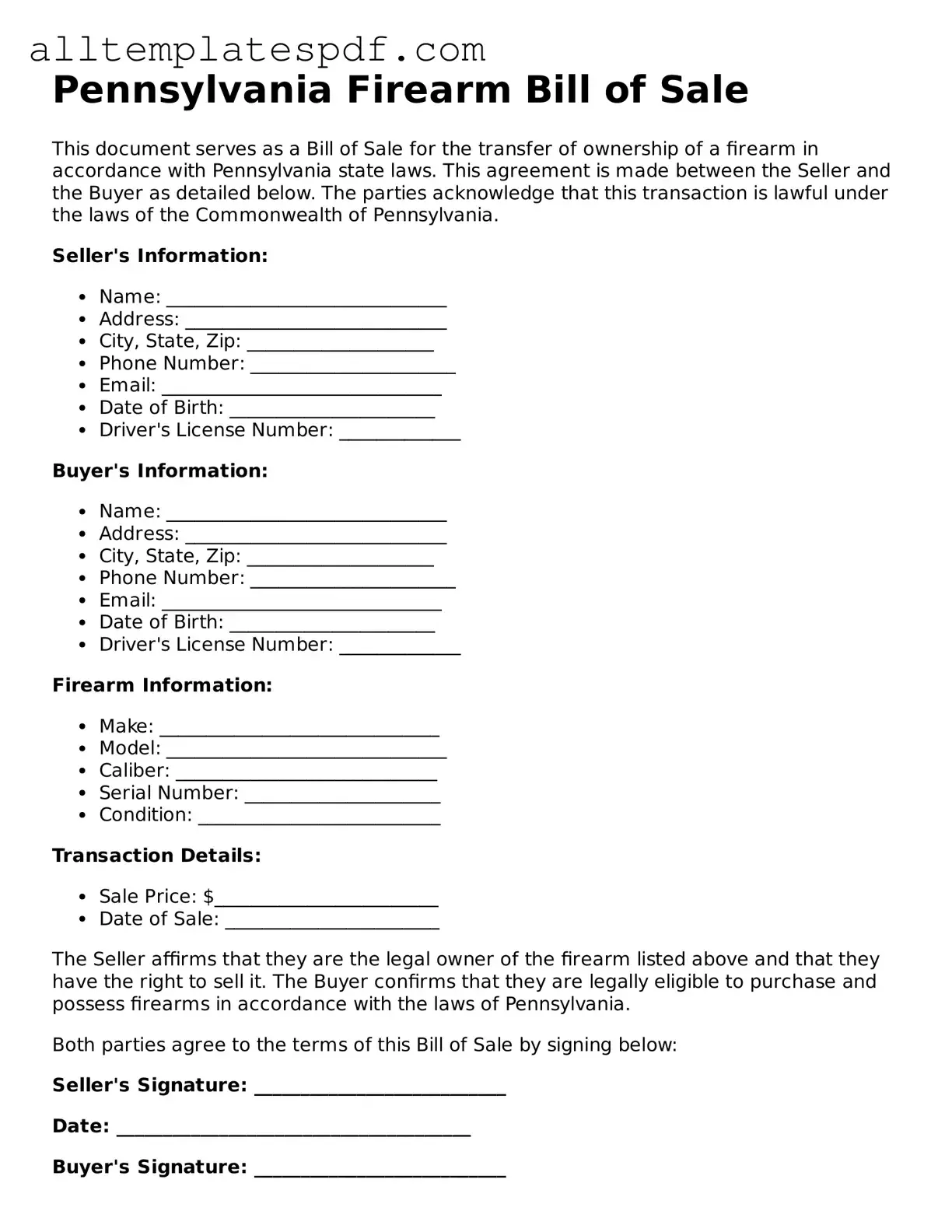Filling out the Pennsylvania Firearm Bill of Sale form can seem straightforward, but mistakes are common. One frequent error is failing to provide accurate information about the firearm itself. Buyers and sellers must ensure that details such as the make, model, and serial number are correct. Omitting or misrepresenting this information can lead to complications later on.
Another mistake involves the identification of the parties involved in the transaction. Both the buyer and seller must provide their full names, addresses, and identification numbers. Incomplete or incorrect information can invalidate the sale, leaving both parties vulnerable to legal issues.
People often overlook the requirement for signatures. Both the buyer and seller must sign the form to confirm the transaction. Neglecting to do so can render the document unenforceable. It is essential to double-check that both parties have signed before considering the sale complete.
Additionally, individuals sometimes fail to date the Bill of Sale. The date serves as a crucial reference point for the transaction. Without it, questions about the timing of the sale may arise, potentially complicating future legal matters.
Another common mistake is not providing sufficient information about the transaction itself. This includes the sale price and any conditions attached to the sale. Clear terms help prevent misunderstandings and disputes down the line.
Some people mistakenly believe that the Bill of Sale is not necessary if they are familiar with the buyer or seller. However, having a written record protects both parties and provides proof of the transaction. It is always advisable to complete the form, regardless of personal relationships.
In addition, individuals may neglect to keep a copy of the Bill of Sale for their records. Retaining a copy is vital for future reference, especially if questions about ownership arise. Both parties should ensure they have their own copies stored safely.
Finally, failing to understand the legal implications of the Bill of Sale can lead to significant issues. Individuals should be aware that this document serves as a legal record of the transaction. Understanding its importance can help ensure compliance with state laws and regulations.

